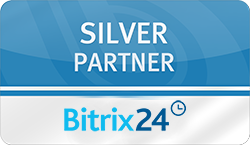CRM Implementation
Having someone with experience project manage your CRM Implmentation can help overcome a lot of roadblocks and configure the system to deliver as scoped.
A well configured CRM platform will deliver your business objectives
Manage your implementation
CRM platform implementation is a process that involves integrating a Customer Relationship Management (CRM) system into a company’s existing workflows and processes.
It will involve operational changes - therefore it will always have some complexity and challenges.
Cymer CRM is here to guide your business to a successful implementation, then acceptance, followed by PROFITABLE BUSINESS GROWTH!
Successful CRM implementation requires careful planning, collaboration with different teams, and the commitment to adapt to new processes to ensure that the platform delivers the expected results in improving customer relations and overall business growth.
A typical CRM implementation process includes the following steps:
CRM & Data Audit
CRM Scoping & Implementation Planning
CRM Configuration
CRM Data Migration & Integrations
CRM User Acceptance Testing & User Training
Go Live & CRM Support


Implementing a CRM platform at Loughborough University
The University were embarking on a new project to invest in a CRM platform and strategy that integrated all of the Student Recruitment cycle.
These significant changes enabled higher engagement with prospective students, more Open Day bookings with record (and more accurate) attendance rates and a unified picture of recruitment as prospects were linked to applicants, showing the Return on Investment of campaigns and providing better analysis for year-on-year comparisons.
CRM & Data Audit
CRM Scoping & Implementation Planning
- CRM Platform procurement
- Stakeholder Workshops
- Budget & Timelines
- Data Management
- Database Schema
- User Types & Access
- Platform Configuration
- Software Integrations
- Data Migration
- Custom Developments
- Reporting
- Cymer Testing
- User Acceptance Testing
- User Training
CRM Configuration
Further configuration is required to ensure that Data tables match the Database Schema and will be compatible with migrated data and/or imported data.
Required functions are also configured, e.g. Marketing channels for inbound/outbound communications.
Automated processes are configured to meet operational requirements, e.g. Lead Conversions, Task Management, Job notifications.





 .
.